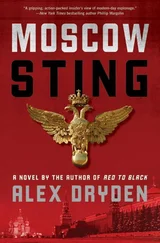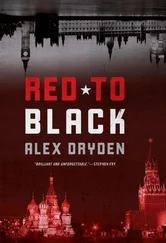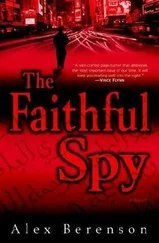The Patriotiy were the core, Viktorov ruminated as he waited for the coffee to arrive. They were the promise. They were like a rare seed, preserved in one of Russia’s frozen storage units, that guarded the planet’s ecological and agricultural future. Like these rare seeds, the Patriotiy were the guardians of Russia’s past and the hope for its future. They were the only ones left with any power who were true to the memory of their own people where Russia’s former might was concerned. And for a moment Viktorov felt a brief affinity for the GRU boss Antonov, a veteran like himself of Afghanistan.
The Patriotiy consisted mainly of these veterans from the Afghan war. Most important in this all-but-secret society of the new Russia, members of the Patriotiy didn’t believe that the loss of empire was anything other than a temporary historical mistake. In any democratic country, they would have been way outside the political process, on some semilunatic fringe. In the Russia of the twenty-first century, however, they were at the centre of power, though invisibly so to all but a few. Afghan veterans like himself and Antonov, who had risen in Putin’s Russia through the organs of the security services, the Patriotiy were now in control of several intelligence departments and government ministries and had brought their grudges of lost empire with them.
Coffee arrived, delivered by an attractive woman in uniform whom Viktorov smiled at with an avuncular look that didn’t—and didn’t intend to—disguise the lust that lurked behind it. And then the room began to fill up with a dozen or more men in their sixties or seventies and a few younger men. Most of them were in uniform, lesser generals, colonels, retired or not retired. Greetings were exchanged, old links renewed. Two more uniformed female assistants had now materialised to help Golubev distribute files to all the men. Viktorov gave his trademark smile to the woman who approached his table. He took a file and slipped a pair of reading glasses over his nose. The title in bold Cyrillic on the cover was: “Reappraisal. The Weakness of Ukraine—Political, Economic, Ethnic, and Military.”
Viktorov and the others leafed through their files without yet reading them closely. “Who wrote this?” Viktorov snapped at Golubev.
“A think tank at the Ministry of the Interior,” was the reply. “Along with some of your own intelligence staff, General.”
Behind my back, Viktorov thought. The prime minister’s mind games had begun. He snorted loudly and confidently, though whether at the words “think tank” or the fact that Interior people were in part the authors was unclear. Not that he despised the Interior Ministry. The Interior Ministry was one of several important ministries now controlled by the Patriotiy, and its chiefs shared the same aims as the people in the room.
For a moment, Viktorov removed his glasses and looked across the large room. He stared hard with unfocused eyes until he recognised his son, Dmitry. Or Balthasar—though only the two of them knew him by the latter name. He saw that Balthasar was talking to an older man—an officer in the Alpha Group, Viktorov thought. Viktorov couldn’t take his eyes away from his son.
Then Balthasar broke away from a brief exchange with the officer and began to make his way through the throng. He walked with expert precision around three tables and paused to nod a greeting and say a few words to two or three other men. He looked assured, smooth in his movements, somehow modern, Viktorov thought, in that his proper deference to senior men was never at the expense of his personal pride and individuality. He was a colonel—also in Department S—and was now thirty-eight years old. But in this room he was a junior.
Viktorov saw Balthasar was clearly making his way towards him. With one hand he was lifting up a chair that was in the way, while with the other he shook greetings with colleagues. He looked directly into people’s eyes.
Amazing—even now it amazed Viktorov. Such extraordinary power Balthasar had. Nobody who didn’t know him would ever have guessed that he was blind. And, knowing that he was blind, nobody would have dreamed that he could be Russia’s most senior and most-decorated intelligence field operative in all of the Muslim countries. Amazing, there was no other word for it. Sometimes his son’s strange abilities discomfited Viktorov—but there was no denying Balthasar’s extraordinary, if uniquely bizarre, powers. For not only did he have an unerring geographical relationship with the people around him and with his surroundings in general—sensing the chair, moving it easily, knowing precisely where there was a hand to be shaken, understanding exactly where to meet other’s eyes with his own sightless ones—but also, despite all of this supernatural power, to Viktorov’s mind, Balthasar’s real value was that he could do what no eye and no electronic device could do, no matter how sharp or sophisticated. He had the ability of seeing inside the minds of those he was with. He had a sixth sense and maybe—who knew?—a seventh and an eighth.
Viktorov cast his mind back thirty-nine years. The brothers of Balthasar’s mother who he, Viktorov, had rescued him from all those years ago had said he was cursed by God. This “curse” had turned out to be a most precious, a most unique weapon. God had given him something far greater than normal sight. As it turned out, God had blessed him.
Balthasar approached his father and, with the same direct accuracy, shook his hand, “looked” in his eyes, and exchanged a welcome. To Viktorov his son’s demeanour suggested Balthasar was in some official position in this room. He appeared to be at the heart of the purpose of the strange meeting. Viktorov wondered why he hadn’t known before about Balthasar’s presence. He was the chief of Department S, for God’s sake.
So. This morning was the prime minister’s party and his own position could be, and often was, usurped by Putin and a few others. Yet what did Balthasar have to do with the message on the table? The map? Ukraine was an Orthodox Christian country. Not Balthasar’s area of operations at all. Balthasar was in Islamic operations, pure and simple. Ukraine was the birthplace of Russian Orthodoxy, the origins of old Rus. Ukraine was Russia’s spiritual heartbeat.
“Look at this,” he said, pointing at the map, and then immediately felt foolish to be using a word that assumed working sight.
“I know.” Balthasar smiled, ignoring the mistake. He put his hand on the map, as if he could actually feel the terrain it represented. “Ukraine,” he said simply.
If Viktorov thought he would draw out his son’s reasons for being here by referring to the map of Ukraine, he was unsuccessful.
A trolley was now brought in by the two women who had distributed the files. It was 6:45 A.M. and there were several bottles of flavoured vodka and shot glasses on it. Not Golubev’s idea of the right time for a drink and the ministry man was showing it with anxious glances. Not Putin’s idea either, for that matter, so perhaps that was why Golubev looked so uncomfortable. But the glasses were distributed solemnly—like some sort of pseudoreligious, regimental ceremonial—by a one-legged spetsnaz hero who was apparently determined to show his infirmity made no difference. The toast, when it was raised by a fellow SVR general, was to “Historic Russia.” All present drank and placed their glasses back on the trolley, which was wheeled away. One drink for the toast, that was it. The party, such as it was, was over. And they all knew that historic Russia meant Kiev, the capital of a Ukraine which had been independent from Moscow now for twenty years, after centuries of occupation.
Читать дальше












